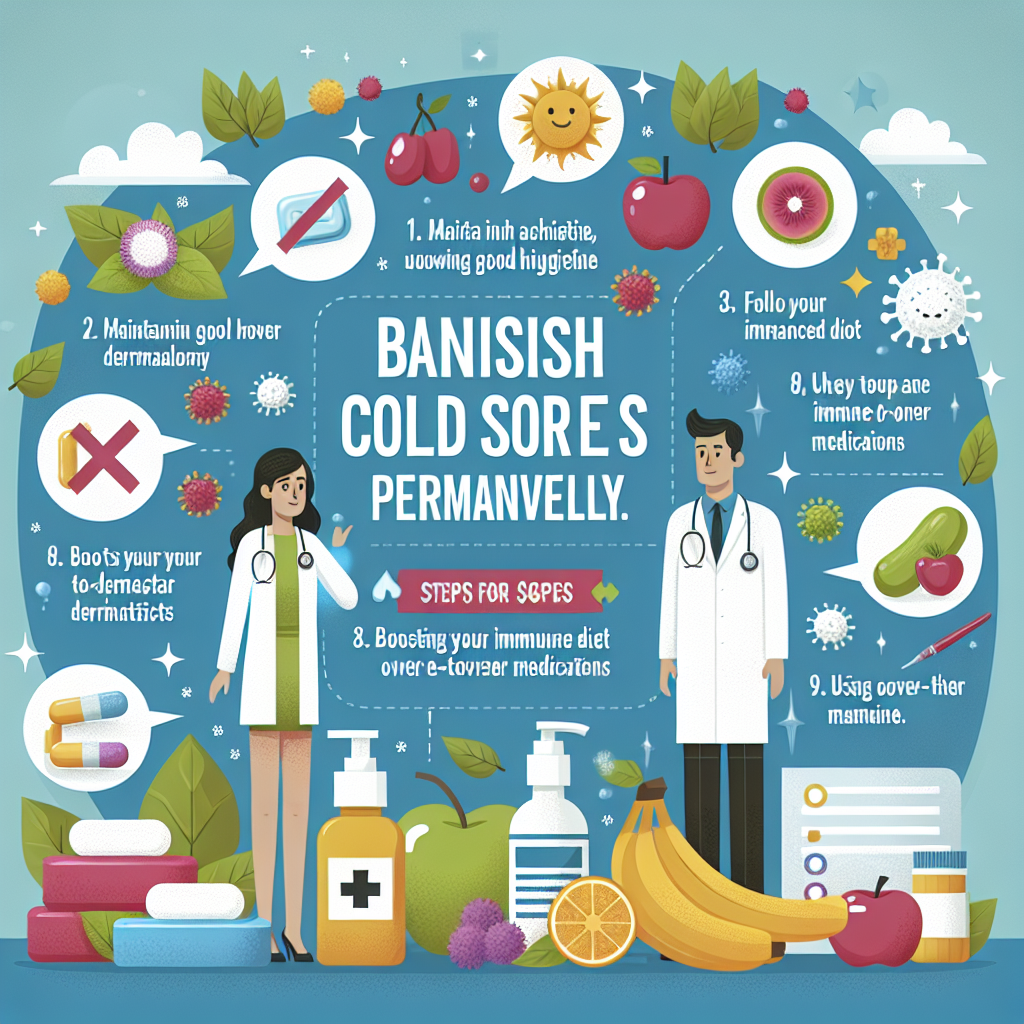How to Get Rid of Cold Sores, According to Dermatologists

Understanding Cold Sores
Cold sores, caused by the herpes simplex virus type 1 (HSV-1), are common and affect billions of people worldwide. These fluid-filled blisters typically appear on or around the lips and are known for recurring outbreaks.
What Do Cold Sores Look Like?
- Cold sores often appear as a group or cluster of blisters that may evolve into crusting or a scab.
- They are associated with a burning sensation, pain, and swelling.
Cold Sore Symptoms
Symptoms include tingling, burning, redness, swelling, and the formation of blisters. Early treatment during the prodrome phase can help prevent full outbreaks.
Treatment Options
Prescription Antivirals
Prescription-based antivirals are recommended by dermatologists for managing cold sore outbreaks.
Over-the-Counter Treatment
Over-the-counter antivirals containing docosanol, such as Abreva and Lysine+, can help in treating cold sores.
Protective Patches and Ointment
Hydrocolloid patches form a protective barrier over the cold sore, aiding in healing and preventing infection. Applying petrolatum-based ointment like Vaseline can also help with the healing process.
Wear Lip Balm with SPF
Using lip balm with SPF is crucial to protect the affected area from sun exposure and minimize discoloration post-healing.
Be Gentle with Your Skin
Avoid picking or irritating the cold sore to prevent scarring. Using an ice compress and making subtle lifestyle changes can help manage symptoms.
Hiding Cold Sores with Makeup
Apply with a Disposable Applicator
Use disposable cotton swabs or clean fingers when applying makeup to cold sores to prevent contamination.
Prime with Color-Correcting Products
Color-correcting products with a green tint can help camouflage redness before applying concealer.
Opt for Full-Coverage, Hydrating Concealers
Choose hydrating concealers like Kevyn Aucoin Sensual Skin Enhancer or Make Up for Ever Full Cover Concealer for effective coverage.
Prevention and Additional Tips
Preventing Cold Sores
Managing stress, getting enough rest, and protecting your lips from sun exposure can help prevent cold sore outbreaks.
When to See a Doctor
If you experience frequent outbreaks or have persistent symptoms, consult a dermatologist. Seek medical attention for severe symptoms, nonhealing outbreaks, or complications like bacterial infections.
Remember, having cold sores is common and doesn’t reflect negatively on you. Follow these tips from dermatologists to effectively manage and treat cold sores.
Stay informed and take care of your skin!
